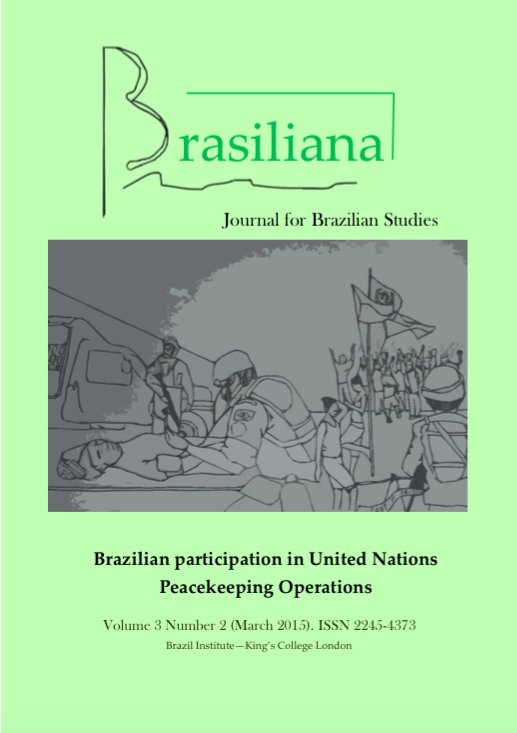Brazil's Rendition of the 'Responsibility to Protect' Doctrine: Promising or Stillborn Diplomatic Proposal?
Conteúdo do artigo principal
Resumo
Brazil has actively participated in the debate around the ‘Responsibility to Protect’ (R2P) doctrine. More recently, Brazil has even proposed what it believes to be a new approach—the ‘Responsibility while Protecting’ (RwP) corollary to R2P. By launching its own rendition for R2P, Brazil has attempted to reinforce the role of the UN Security Council in two different ways: First, in restricting the use of force on the grounds of ‘Responsibility to Protect,’ which, according to Brazilian diplomatic reasoning, would hinge upon a multilateral assessment of the situation — a condition expected to considerably diminish the arbitrariness in decision making with respect to the use of force. Second, Brazil aimed to highlight the necessity of reform in the UNSC, since, from a Brazilian viewpoint, the decisions of this organ must be representative in order to discharge new tasks assigned to it. Notwithstanding, Brazil's diplomatic proposal has arguably failed to gain massive support from the countries that compose the UN Security Council political establishment and seems now to be forgotten. This paper aims to provide an account on the Brazilian reaction to “Responsibility to Protect” and its first consequences.
Detalhes do artigo
Como Citar
Tuffi Saliba, A., Belém Lopes, D., & Vieira, P. (2015). Brazil’s Rendition of the ’Responsibility to Protect’ Doctrine: Promising or Stillborn Diplomatic Proposal?. Brasiliana: Journal for Brazilian Studies, 3(2), 32–55. https://doi.org/10.25160/bjbs.v3i2.19881
Edição
Seção
Dossier
![]()
Articles published in Brasiliana are licensed under a Creative Commons Attribution-NonCommercial-NoDerivs 3.0 Unported License.
When publishing open access, the author signs an author publishing agreement in which they retain copyright and give Brasiliana the right to publish the article. Our Open Access publications are distributed under the terms of the Creative Commons Attribution 4.0 International License, which permits unrestricted use, distribution, and reproduction in any medium, provided the original work is properly cited.

